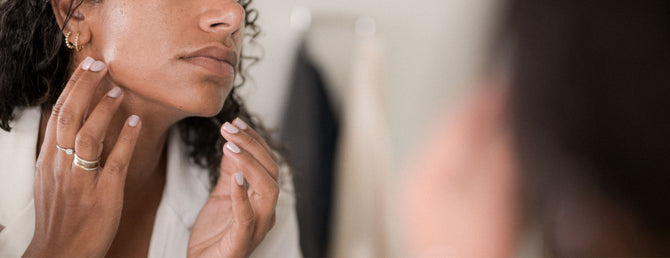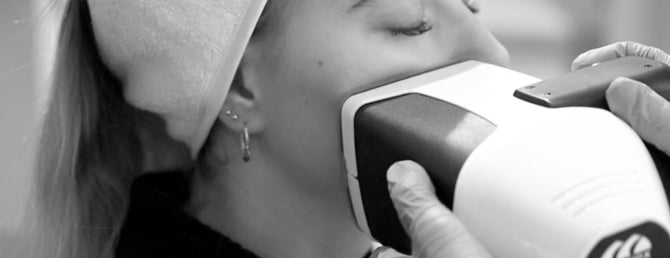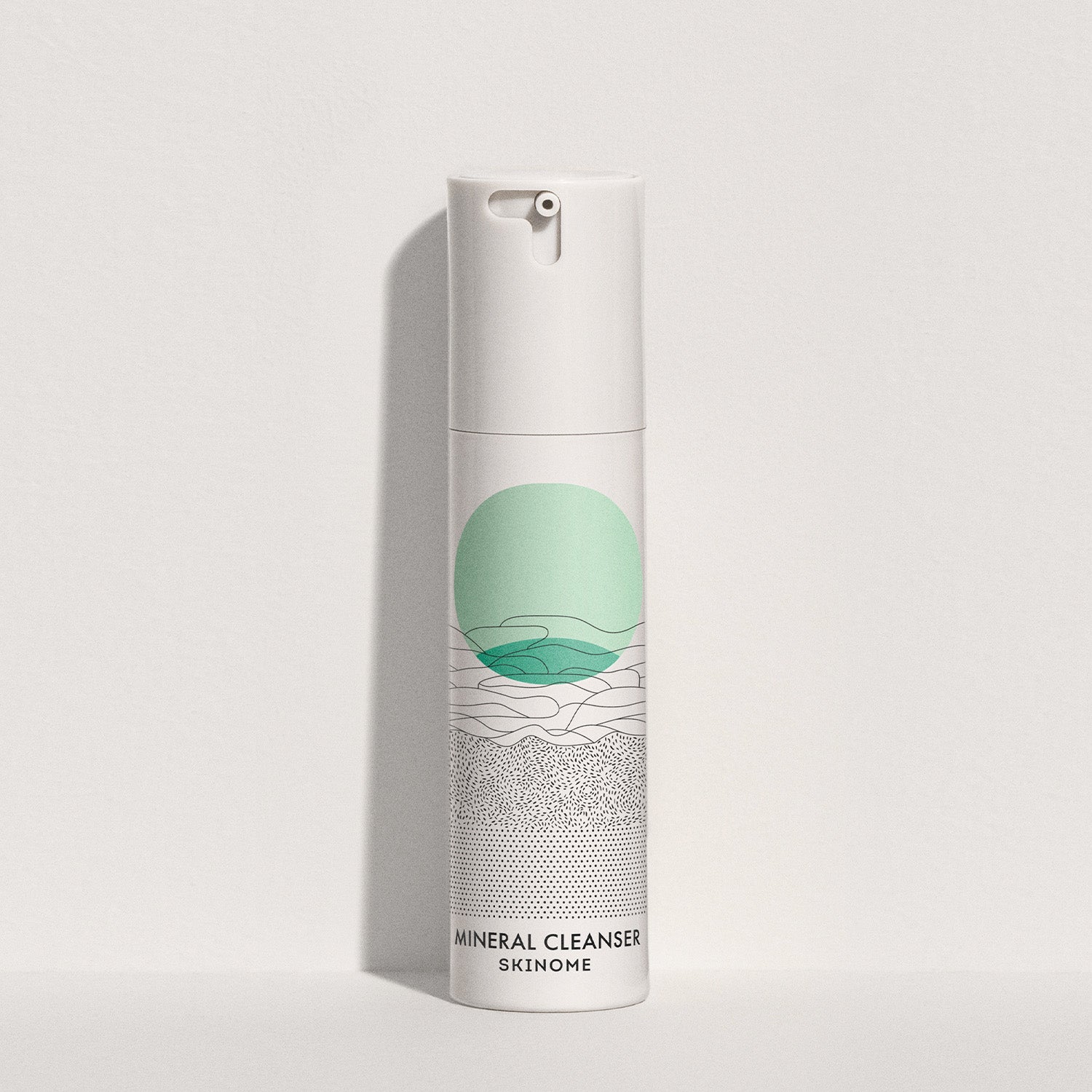
In recent decades, research on the microbiome has grown, revealing that we host trillions of microorganisms in various parts of our bodies, including the skin. These microorganisms, such as bacteria, viruses and fungi, outnumber the human genes. Instead of fighting them, research has shown that it is beneficial to cooperate with the microorganisms by eating fermented vegetables and prebiotic fibers. Probiotics are live microorganisms found in fermented foods such as sour milk and yogurt and can also be taken in concentrated form through dietary supplements, which usually contain lactobacillus.
There is increasing research into the effects of probiotics in skin care, as probiotics have been shown in several studies to have promising potential for improving our skin health on several different levels. For example, clinical studies have shown that a certain type of probiotic can relieve eczema, acne and rosacea by limiting the growth of harmful bacteria on the skin. The good bacteria simply help reduce the bad ones. While more studies are needed to fully understand the effects of probiotics on the skin, current research suggests that probiotics may offer a natural, holistic way to improve the health and appearance of the skin.
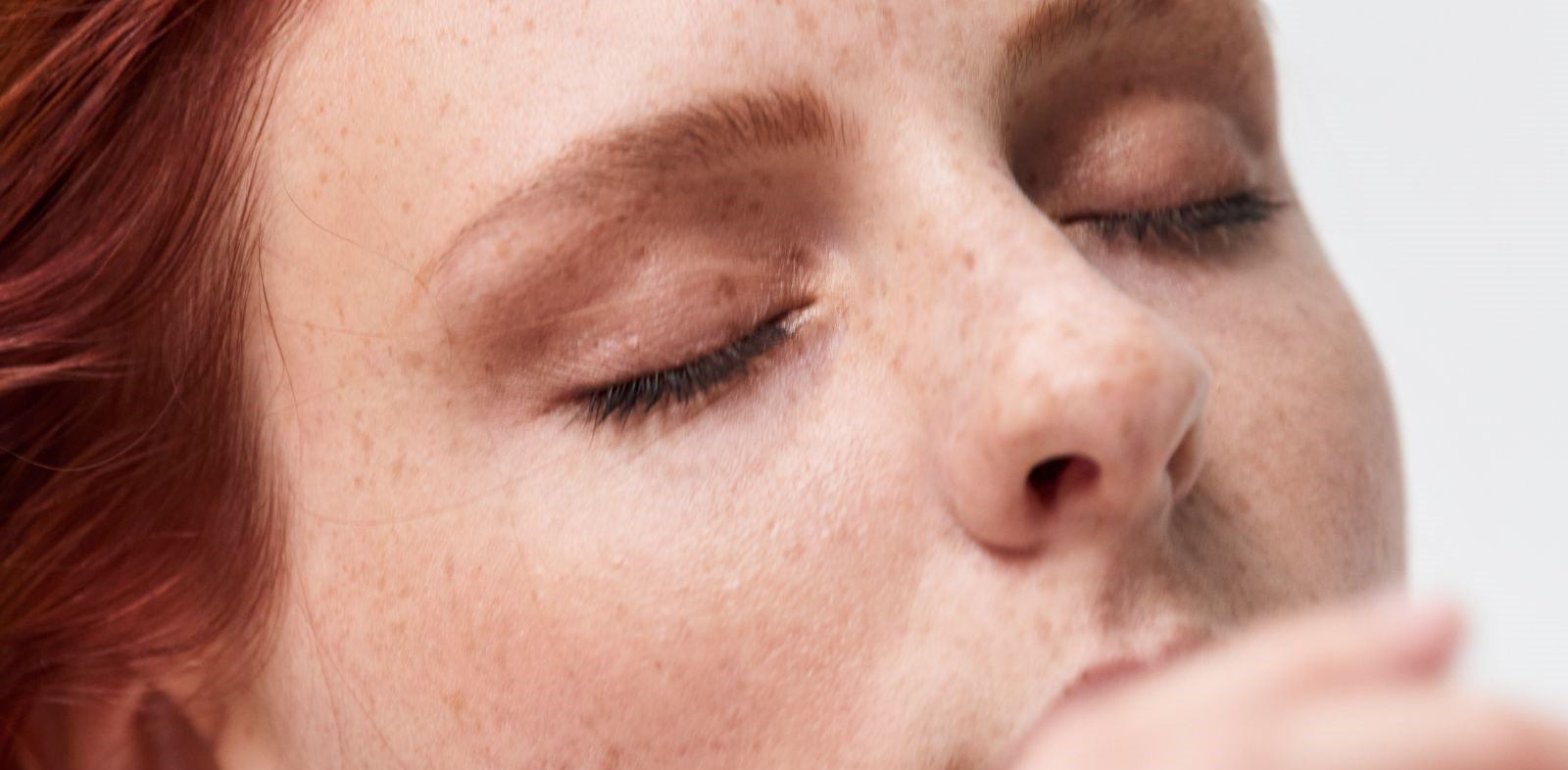
There are a few but very interesting studies that have shown a reduction in oxidative stress and inflammation in the skin plus improved barrier function and more hydrated skin as a result of taking probiotics orally.
In a study involving Japanese female students, participants drank fermented milk containing the probiotic Bifidobacterium breve for four weeks. The results showed that they had more hydrated skin, improved nutrient absorption, and a reduction in facial wrinkles. At the same time, the secretion of sebum in the skin increased.
Researchers from South Korea have also shown in a study that the probiotic Lactobacillus plantarum can improve skin hydration, give the skin more radiance, reduce wrinkles and give a firmer complexion. Consumption of the probiotic lactic acid bacteria L. paracasei has also been shown to reduce skin sensitivity. We have also demonstrated in our own clinical study on Probiotic Concentrate a reduction in fine lines and wrinkles after just 3 weeks of use.
Even though we are only talking about a small number of studies here, these are interesting observations and it is exciting to follow this area of research that appears to have great potential.
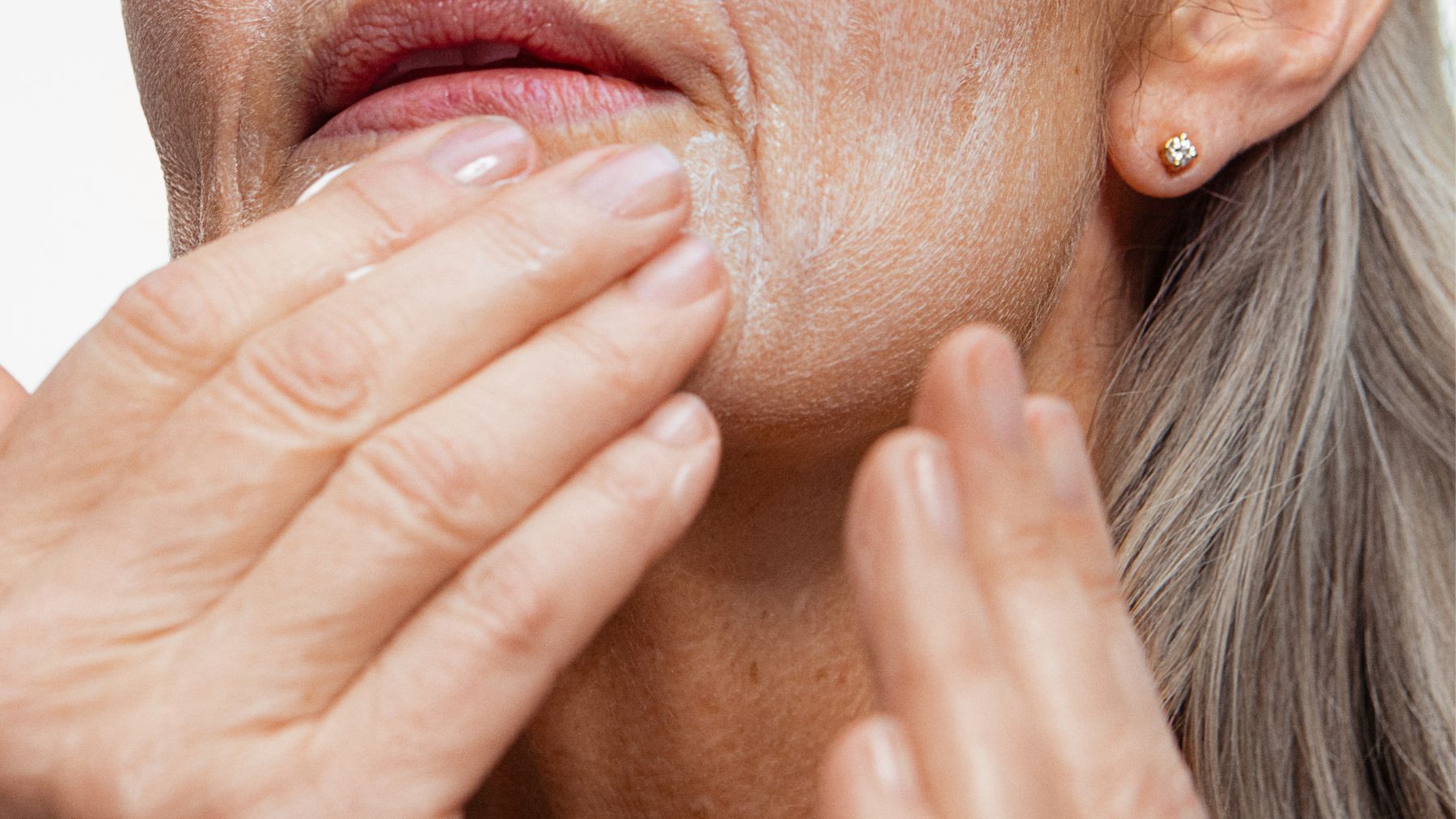
Lactobacillus reuteri , which we use in Probiotic Concentrate , is a bacteria that originates from breast milk and has unique anti-inflammatory properties. The first study with Lactobacillus reuteri related to skin health was done 20 years ago and since then several studies have been published with positive results.
Together with the world-leading probiotic company Biogaia, we have studied the effects of this lactic acid bacterium on skin health and in 2019 we published the results of our study in the prestigious journal "Journal of Experimental Dermatology". After several years of research, we launched our first product with Lactobacillus reuteri in 2022 - the Probiotic Concentrate.
The results of our study showed that by applying a skin care product containing Lactobacillus reuteri to the skin for 3 weeks, participants had a more diverse and balanced skin microbiome, improved skin texture, smoother skin, and reduced pore size. But what also surprised us was that we also saw a reduction in fine lines and wrinkles in the participants.
The lactic acid bacterium Lactobacillus reuteri is the most well-studied probiotic bacterium globally with over 224 clinical studies and over 200 worldwide patents. Each bottle of Probiotic Concentrate contains over 100 billion bacteria, which is more than 25 times more bacteria compared to other probiotic skin care products on the market.
We are proud to be the first to market with a skincare product formulated with this probiotic and look forward to continuing to improve skin health through our research and development.

with Lactobacillus Reuteri
The probiotic L. reuteri helps balance the skin flora, leading to healthier and more vital skin.
In just 3 weeks, you can experience a more even skin texture, fewer pores, and smoother skin thanks to probiotic L. reuteri .
Probiotic L. reuteri enhances the effectiveness of Skinome's skincare, so you get the most out of your skincare routine.
Gillbro, J. (2019) The Skin Bible . Stockholm, Bookmark publishing house.
Steinhoff, M., Schauber, J. & Leyden, JJ (2013) New insights into rosacea Dermatology. [Online] 69 (6), S15–S26. Available from: doi:10.1016/j.jaad.2013.04.045.
Li, G., Wang, B., Zhao, Z., Shi, W., et al. (2020) Excessive cleansing: an underestimating risk factor of rosacea in Chinese population. Archives of Dermatological Research. [Online] Available from: doi:10.1007/s00403-020-02095-w.
Van Zuuren, EJ, Fedorowicz, Z., Carter, B., Van Der Linden, MM, et al. (2015) Interventions for rosacea. Cochrane Database of Systematic Reviews. [Online] Available from: doi:10.1002/14651858.cd003262.pub5.
Gillbro, JM, Lundahl, M., Westman, M., Baral, R., et al. (2015) Structural activity relationship analysis (SAR) and in vitro testing reveal the anti-aging potential activity of acetyl aspartic acid. International Journal of Cosmetic Science. [Online] 3715–20. Available from: doi:10.1111/ics.12253.
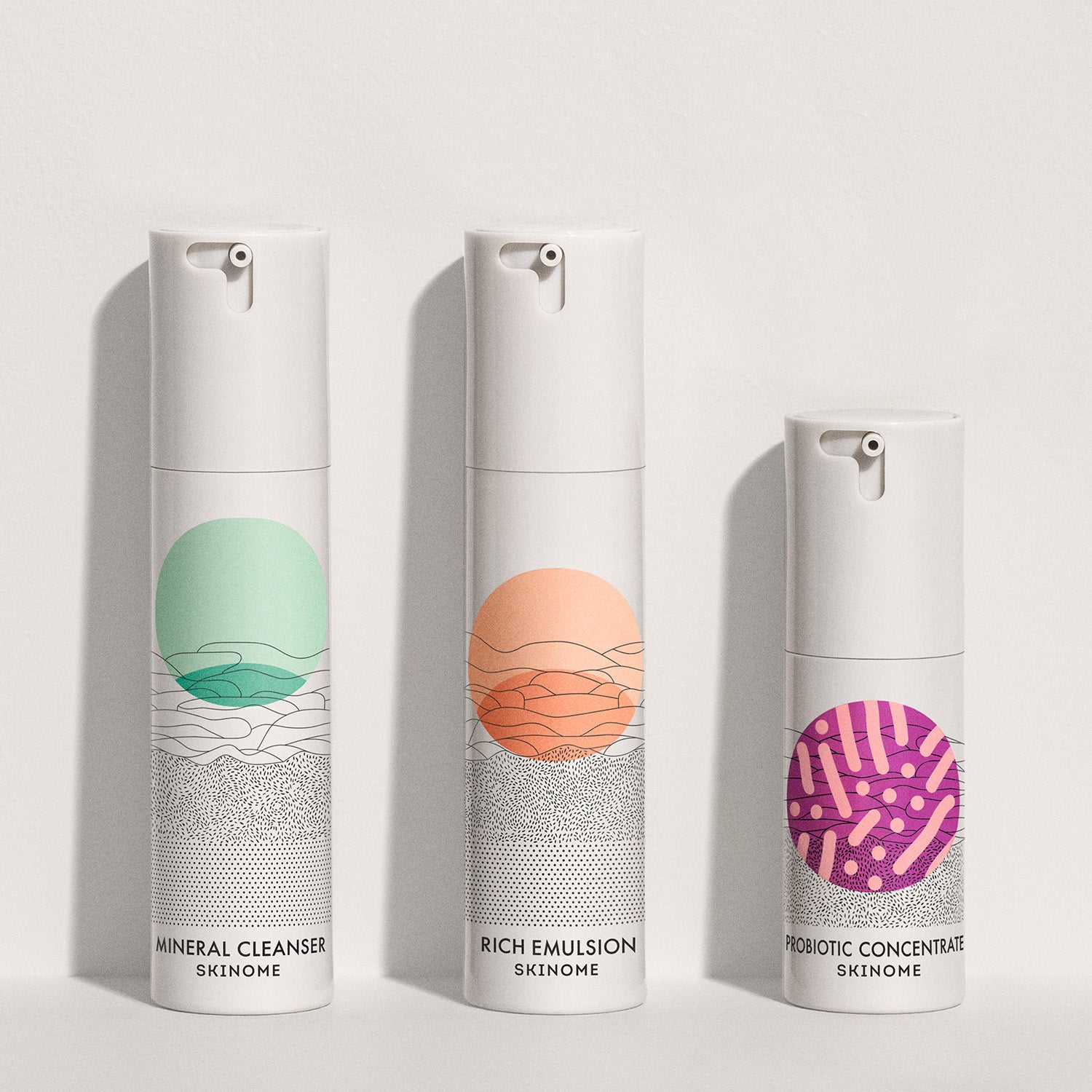

Microbiome-strengthening routine for normal, dry/sensitive skin.
1.467,95 NOK
